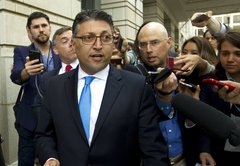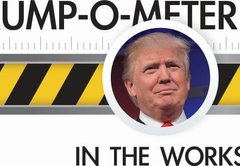Stop the AT&T Time Warner Merger
Donald Trump
"As an example of the power structure I'm fighting, AT&T is buying Time Warner and thus CNN, a deal we will not approve in my administration because it's too much concentration of power in the hands of too few."
Trump-O-Meter

Promise Broken



